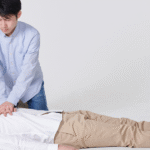Mental health is just as important as physical health, yet it often doesn’t receive the same attention. In today’s fast-paced world, stress, trauma, and lifestyle changes have made mental health disorders more prevalent than ever. According to the World Health Organization (WHO), one in eight people worldwide live with a mental health condition. Understanding the most common disorders can help break the stigma, encourage early intervention, and promote better care.
Here are the top 10 common mental health disorders you should know about:
1 Anxiety Disorders
Anxiety disorders are among the most widespread mental health conditions, affecting millions globally. They include generalized anxiety disorder (GAD), social anxiety, phobias, and panic disorder. People with anxiety often experience excessive worry, restlessness, rapid heartbeat, and difficulty concentrating. With therapy, lifestyle changes, and in some cases medication, anxiety can be effectively managed.
2 Depression
Depression is more than just feeling sad—it’s a persistent condition that affects mood, energy, and overall functioning. Symptoms include hopelessness, fatigue, loss of interest in activities, and sleep disturbances. Severe cases can even lead to suicidal thoughts. Counseling, medication, and support systems play a vital role in recovery.
3 Bipolar Disorder
Bipolar disorder is characterized by extreme mood swings ranging from manic highs (excessive energy, impulsive decisions) to depressive lows (sadness, exhaustion). These shifts can interfere with daily life, work, and relationships. Proper diagnosis, therapy, and mood-stabilizing medications can help individuals maintain balance.
4 Post-Traumatic Stress Disorder (PTSD)
PTSD develops after experiencing or witnessing a traumatic event such as accidents, abuse, or natural disasters. Symptoms include flashbacks, nightmares, and hypervigilance. While PTSD can be debilitating, treatments like cognitive behavioral therapy (CBT) and trauma-focused therapy provide effective relief.
5 Obsessive-Compulsive Disorder (OCD)
OCD involves recurring, unwanted thoughts (obsessions) and repetitive behaviors (compulsions) like excessive cleaning or checking. These rituals may provide temporary relief but often disrupt daily life. Treatment usually combines therapy and medication to reduce symptoms and improve coping strategies.
6 Schizophrenia
Schizophrenia is a serious mental disorder that alters how a person thinks, feels, and behaves. It often involves hallucinations, delusions, and disorganized thinking. While it requires long-term treatment, antipsychotic medications, therapy, and strong support networks enable many to lead fulfilling lives.
7 Eating Disorders
Eating disorders, including anorexia nervosa, bulimia nervosa, and binge-eating disorder, involve unhealthy relationships with food, body image, and weight. They can lead to severe physical complications if untreated. Early intervention with therapy, nutritional counseling, and medical support is crucial for recovery.
8 Attention-Deficit/Hyperactivity Disorder (ADHD)
ADHD affects both children and adults, causing inattention, impulsivity, and hyperactivity. It often impacts academic performance, work productivity, and personal relationships. Behavioral therapy, structured routines, and in some cases, medication, can help individuals manage symptoms effectively.
9 Borderline Personality Disorder (BPD)
BPD is marked by unstable emotions, self-image, and relationships. People with BPD may experience intense mood swings, fear of abandonment, and impulsive behaviors. Dialectical behavior therapy (DBT) has proven especially helpful in managing symptoms and improving emotional regulation.
10 Substance Use Disorders
Substance use disorders involve addiction to alcohol, drugs, or prescription medications. They affect both the brain and behavior, making it difficult to control substance intake. Recovery requires a combination of detox programs, therapy, rehabilitation, and strong community support.
Conclusion
Mental health disorders are more common than many realize, and seeking help is not a sign of weakness—it’s a step toward healing. Just like physical conditions, mental illnesses deserve professional treatment, empathy, and understanding.
If you or someone you know is struggling, reach out to a mental health professional. Support systems, therapy, and early diagnosis can make a world of difference.








